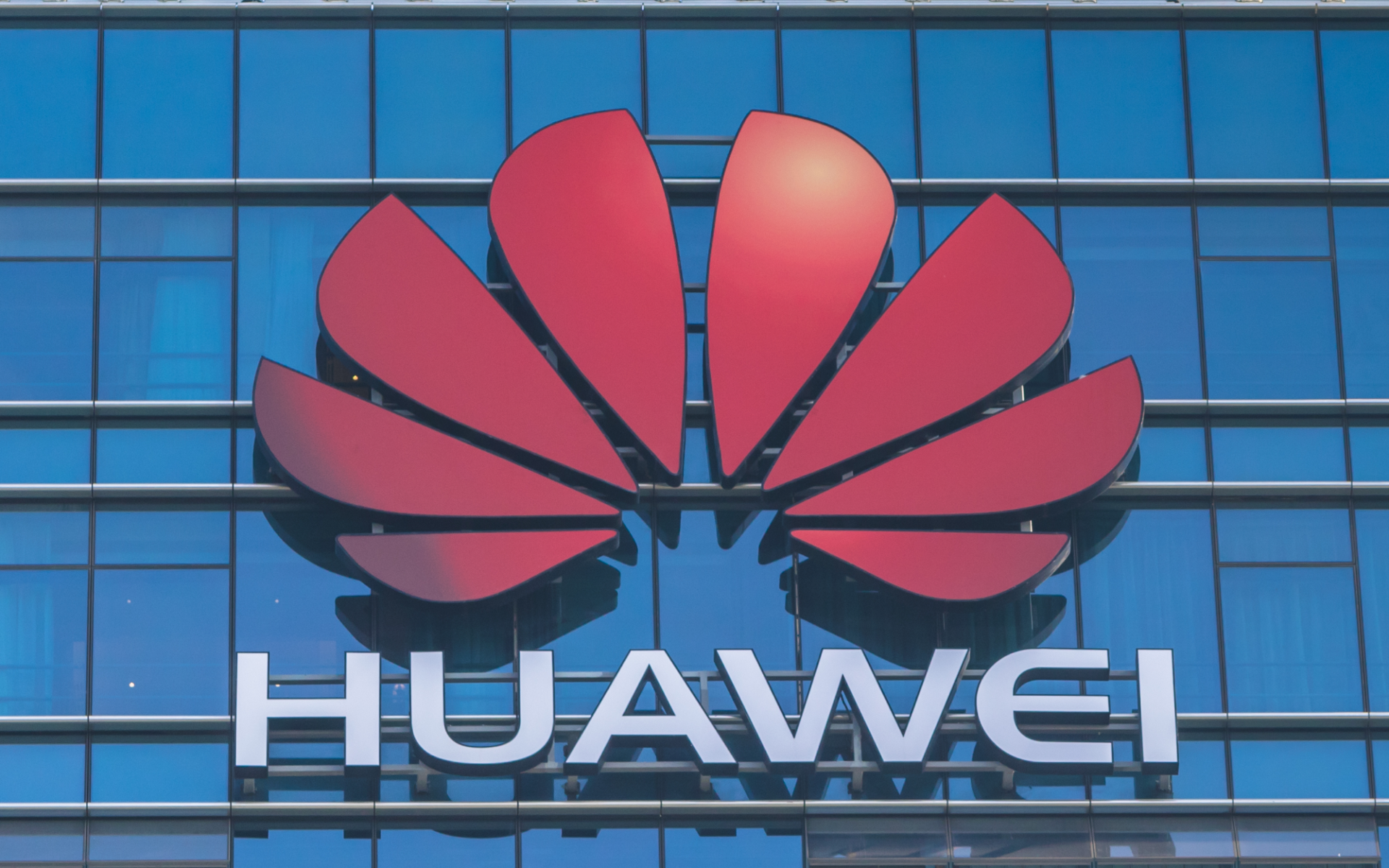The narrative that China is the only choice for 5G technology ignores U.S. ingenuity and the Chinese Communist Party’s quest for data as a method of control.
The United Kingdom’s decision to allow Huawei to participate in building the country’s 5G networks, despite warnings from Washington, is about more than the U.S.-U.K. alliance; it’s about freedom. The pressures shaping the decision in the United Kingdom are similar to those in the U.S. market. U.S. corporations (and, according to a Wall Street Journal report, the Pentagon) insist that the United States and China are technologically intertwined and any attempt to separate them will result in tragedy for the U.S. economy. Their prevailing view that China has so surpassed the United States in 5G technology that the U.S. will not be able to catch up actually ensures that China maintains a dominant position geopolitically and economically. Therefore, the United States must change its outlook and, accordingly, its policies or risk becoming a technological backwater and “data colony.”
China’s Strength in the Market
The evidence for the prevailing view is that Huawei’s market share in telecommunications is without peer. It is the only completely vertically integrated IT company in the world, making everything from fiber optic cables to the advanced radios that power the new, higher-speed 5G mobile communications technology. This dominance is not happenstance.
The Chinese Communist Party’s industrial policy ensures that Huawei receives up to $75 billion in research and development investment as well as domestic market protections and international market subsidies, facilitating Huawei’s dominance. The Chinese Communist Party is also intent on dominating 5G technology standards and deployment. Therefore, the party directed its telecommunications operators to rapidly deploy 5G and in November 2019 went live with 5G in 50 major Chinese cities.
Huawei’s strong push in international telecommunications infrastructure markets with subsidized deployment means they will be consuming most of the resources going into 5G, the newest generation of communications technology that offers greater stability and exponentially faster speeds. Chinese companies and academia send large delegations to the 3GPP (3rd Generation Partnership Project) bodies, which develop telecommunications industry standards, to not only create a strong show, but also ensure their patented technology maintains a dominant position. The Chinese lead many of the most important groups within 3GPP, and command most of the standards in 5G telecommunications security.
The U.S. Position and Capabilities
China’s reach in telecommunications creates enormous incentives for U.S. corporations to join the Chinese in promoting what is primarily a Chinese-designed mobile communication system for machines. Because the industry is so dominated by China, U.S. semiconductor companies have no choice but to promote the current technology as the only choice for the American people. The argument is that companies from other countries are no match for China, the United States must adopt China’s technologies or risk falling behind. This view, however, is defeatist and does not consider the enormous lead in the foundational technologies held by the United States. Many of the advanced chips, like Field Programmable Gate Arrays, are designed and produced by the United States.
In fact, it is Huawei and other Chinese companies that were forced to scramble when the United States put them on the Commerce Department’s entity list (meaning that U.S. technology companies cannot sell items on an export control list, such as advanced chips, to them). This fact alone ensures the Chinese network will lag in performance behind those networks built using the most advanced U.S.-made.
The 5G network relies more on software than any mobile wireless network yet built. Initiatives like cloud-based virtualized network cores and open radio access networks promise to commoditize much of the hardware that has previously led to vendor lock-in. Much of that innovation is happening outside China with companies like Jio in India and Rakuten in Japan, with U.S.-based suppliers like Cisco, Airspan, and Mavenir providing Network Functions Virtualization Infrastructure (NFVi).
In addition, the U.S. government has spent billions of dollars developing technology for the military that for the most part has stayed out of the commercial sector. 5G is a blend of technologies that the U.S. and allied militaries have been perfecting for decades. This includes software-defined networks and radios, and beam-forming antennas. Other technology like mesh networks and dynamic spectrum allocation have been developed then held, or only deployed in military applications.
The telecommunications carriers have failed to incorporate these innovative technologies because of business models and strategy. Prevailing market conditions have also made investment in carriers unprofitable. Therefore, to ensure their survival, the carriers are increasingly investing more in media content instead of the networks themselves.
This practice is not because of market-based economics, but instead because worldwide, market forces no longer govern what happens in telecommunications. Beijing’s subsidies of China’s equipment have created monopoly conditions everywhere. Prices, and the industry itself, are driven by the Chinese Communist Party’s desire to harness and control the world’s data for its own self-sustaining ends.
The Party’s Calculations
Today machine learning, big data, artificial intelligence, e-commerce, financial technology, and Silicon Valley business models have created a world where data dominance is a barrier to entry not just for businesses, but nations as well. Large Silicon Valley tech companies have benefited from this barrier, because the two main platforms — iOS and Android — are led by American technology behemoths. This dominance leads to large profits and high stock prices for those businesses. It has also led to responses meant to protect personal data and preserve privacy, like Global Data Protection Regulation (GDPR) in the EU. Yet, GDPR has been wholly unsuccessful in preventing the continued dominance of the Silicon Valley technology companies, because the data protection system is ungovernable in its present state. This is because despite the desire to ensure individuals control their own data, no effective technology pathway exists in 3GPP protocols to do so.
The Chinese Communist Party seeks to replicate this dominance in 5G as the platform moves from smartphones to smart-life, where the network itself begins to actualize the Internet of Things. In a smart-life world, instead of using an app to summon an Uber, one can merely speak the words, and a camera and microphone transform speech and gestures into services at blinding speed. This is why the Chinese Communist Party has been working for years to develop bleeding-edge apps, services, business models, and governing systems. Three years ago, patrons entered common Chinese restaurants and a facial recognition-powered camera would recognize the patron and not only alert the server to bring the food but also greet the patron by name. The same technologies also allowed traffic cops to identify law breakers.
These technologies are not remaining behind the “Great Firewall” but are increasingly being deployed outside of China. “Engineering Global Consent” documents a Chinese big data company that in addition to using its data for language translation also sends the data to the intelligence and influence arms of the Chinese regime. Russians and Chinese use big data analysis, AI bots and social media networks to influence elections, and Chinese technology companies like Baidu, Ali Baba and Tencent have the data, algorithms — and soon market heft — to aid the Chinese Communist Party in its efforts.
All of this points to a conclusion that differs from the U.S. corporations’ narrative that China and the United States must remain technologically entwined: Despite China’s advances, the United States has the technological capability to go its own way. Americans also have the evidence of what lies ahead if we do not separate, made clear by the forced submission of U.S. corporations like the National Basketball Association or the U.S. airline industry to Chinese Communist Party demands.
The U.S. National Security Strategy outlines a path where America, along with allies and partners, can protect and preserve their democracies and economies by building secure 5G networks rather than following 3GPP into digital slavery. In the process, they can collectively rebuild technological competency and grow their economies. It merely remains to be seen whether we have the will to do so.
Retired U.S. Air Force Brig. Gen. Robert Spalding is a national security policy strategist, and globally recognized for his knowledge of Chinese economic competition and influence, as well as for his ability to forecast global trends and develop innovative solutions. Gen. Spalding has served in senior positions of strategy and diplomacy within the Defense and State departments for more than 26 years. Dr. Spalding was the chief architect of the Trump administration’s widely praised National Security Strategy (NSS), and the Senior Director for Strategy to the President at the National Security Council. Spalding is an Olmsted Scholar, a Life Member of the Council on Foreign Relations, and a Senior Fellow at the Hudson Institute, Washington, D.C. He holds a doctorate in economics and mathematics from the University of Missouri, Kansas City, is a distinguished graduate of the Defense Language Institute in Monterey, and is fluent in Chinese Mandarin. Follow him on Twitter at @Robert_Spalding.







